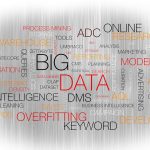Today there was a lot of rumour in The Netherlands because Dutch Bank ING is considering selling insights from data about spending patterns of its customers to organisations for targeted advertisements of 3<sup>rd</sup> parties on its own platform. Many organisations, such as the Consumers Association, are against this proof of concept and even the political parties … [Read more...] about How Organisations Should Deal With The Big Data Knowledge Gap of Consumers
Strategy
Learn everything about data strategy, what it should include in order to be successful, and how you can develop a data-driven business strategy for your business.
How To Create The Business Case To Start With a Big Data Proof of Concept
For organisations small and large, local or multinational, developing a big data strategy is a difficult and time-consuming exercise. In fact, big data projects typically take 18 months to finish. Developing the business case and a Big Data proof of concept is only the beginning of such a long road, but nevertheless a very important one. Where do you start, what aspects are … [Read more...] about How To Create The Business Case To Start With a Big Data Proof of Concept
How Well Has Your Organisation Adopted Big Data: The Big Data Business Model Maturity Index
In this video, Bill Schmarzo, discusses the Big Data Business Model Maturity Index, a tool that helps organisations understand how well they have adopted big data and what they need to do to achieve the ultimate phase of a data-driven, information-centric organisation. He discusses five different phases that your organisation can be at from the standard traditional business … [Read more...] about How Well Has Your Organisation Adopted Big Data: The Big Data Business Model Maturity Index
How Big Data Analytics Will Affect Your Company Culture
Whether your company builds software, provides marketing services or sells life-sized posters of Fred Flintstone, big data analytics will affect your company culture. Why? Its simple: analytics offer information, and once information has been learned, it changes everything around it. Just as our Stone Age ancestors underwent incredible cultural changes with the discovery of … [Read more...] about How Big Data Analytics Will Affect Your Company Culture
How Big Data Will Improve Decision Making in Your Organisation – Infographic
In the fast changing world, it is important for organisations to stay ahead. Companies have to react faster on market changes, act not only on present but also on future challenges and take decisions that are out-of-the-box. They can achieve this among others by improving their decision making and Big Data can help your organisations with that. This infographic … [Read more...] about How Big Data Will Improve Decision Making in Your Organisation – Infographic
What is data strategy?
Data strategy, also called analytics strategy or business data strategy, is the organizing principle for an enterprise’s investments in data and data-related technologies. Data strategy provides a framework for thinking through the complex trade-offs in managing data as an enterprise resource.
It helps business leaders make decisions about where to focus their data investments and how to maximize the value of those investments. Want to learn more about data strategy? Datafloq has courses available. Contact us to get started.
How does data strategy work?
Data strategy starts with a clear understanding of an organization’s business goals. From there, it defines the role that data will play in achieving those goals and outlines a plan for how to get the most value from data. Data strategy is an essential part of any organization’s overall data business strategy.
When done well, it can help organizations make better use of their data and gain a competitive edge. But when executed poorly, it can lead to wasted resources and missed opportunities. Data strategy is not a one-time exercise; it should be revisited regularly as an organization’s business goals and needs evolve.
What are the four big data strategies?
Big data can be a big help when it comes to making decisions for your business. But how do you make sense of all the data out there? One way is to use the four big data strategies:
- Performance management — Helps you track and improve your business’s performance.
- Data exploration — Helps you understand your data and find hidden patterns.
- Social analytics — Helps you analyze data to understand customer behavior.
- Decision science — Helps you use data to make better decisions.
These strategies can help you get the most out of your data and make better decisions for your business.
What should a data strategy include?
A data strategy should be designed to help an organization achieve its business goals. It should be aligned with the organization’s overall data business strategy to be effective, considering its unique needs, such as its size, industry, and geographic location.
The data strategy should also define the roles and responsibilities of those responsible for managing the data. Finally, the data strategy should identify the tools and technologies that will be used to collect, store, and analyze the data. By considering these factors, an organization can develop a data strategy to help it meet its business goals.
What is a big data strategy, and why should companies have the strategy in place?
Big data refers to a large number of data companies have access to. It can come from various sources, including social media, transaction records, and sensors. The challenge for companies is to make sense of this data and use it to improve their business.
A big data strategy helps companies to set goals and priorities for dealing with big data. It also helps them to invest in the right technologies and build the necessary expertise. Companies will struggle to get the most out of their data assets without a big data strategy. They will also be at a competitive disadvantage compared to those companies that have invested in big data.






